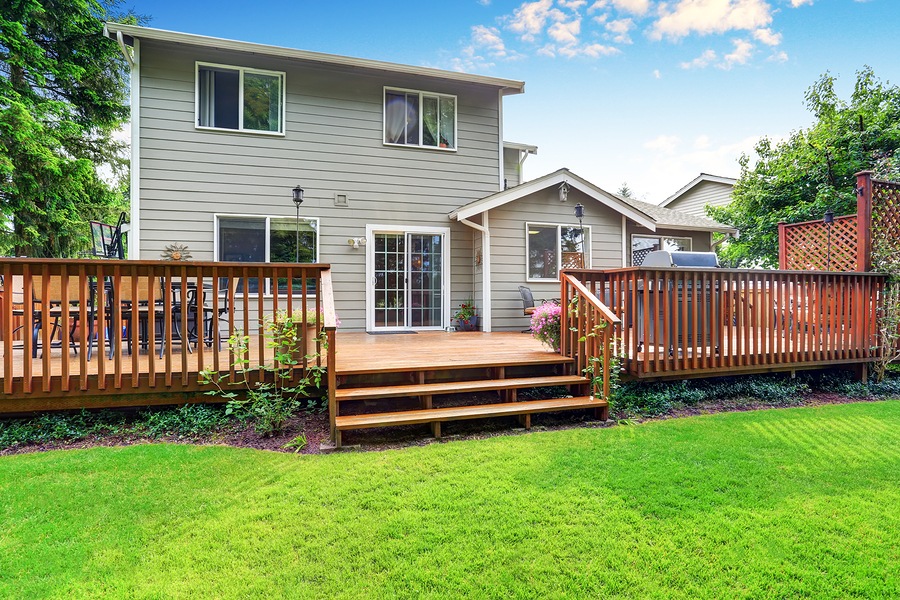Backyard decks have replaced patios and front porches as the social centers of suburbia in the summer. Decks are elevated to catch summer breezes and to facilitate conversations with neighbors on their decks. Large enough for a table and grill, most decks are more versatile than front porches and provide privacy from street traffic.So how much is a deck worth? If you are house-hunting, how much does a deck add to the value of a home you are considering? If you are thinking about adding a deck, will it pay for itself when you sell, adding more value than the cost of construction?

Remodeling magazine's annual Cost vs. Value Report looks at a range of projects by cost, region, and metro. They report estimate costs by surveying contractors and realtors on the added value of specific projects to sales prices. The December 2016 Remodeling Impact Study by the National Association of REALTORS® and National Association of Landscape Professionals (NALP), estimates costs and recovery values for ten outdoor projects, including decks. These are two good sources that provide hard data on the cost vs. value of home improvement projects.In the NAR/NALP study, a new wood deck will recover 106 percent of its value when the house is sold. Estimated construction cost estimated was $9,450, and the estimated value that a new deck adds to the house value at the sale was $10,000. A wood deck ranked third out of the ten projects addressed by the study regarding cost recovery.Decks didn't do fair as well in the Remodeling magazine report. The more expensive the deck, the lower the cost vs. value ratio or percentage of cost recovered at the sale.
Wood vs. Composite
Wooden decks cost less that those made of composite material and also had a higher cost vs. value ratio. For a mid-range deck (16-by-20-foot deck) made of a composite material, the national average construction cost was $17,249, which increased a home's resale value by $11,252, for a 65.2% cost vs. value ratio. For a mid-range wooden deck, the average cost was $10,707, and value added to the home averaged $7,652, for a cost vs. value ratio of 71.5%.More expensive decks faced worse recovery regarding recouping construction costs. An average high-range composite deck cost an average of $39,339 to build, increased the average home sales price by $22,171, but the cost vs. value ratio fell to 56.6%.Regionally, decks recouped more of their costs in regions where outdoor lifestyles are more popular. For example, cost vs. value ratios for a mid-range wood deck ranged from in the 81.8% in the Pacific region and 81.4% for the Mountains vs. 56.9% for the East North Central (upper Midwest).

The Joy Factor
Since only one of the two studies found that decks pay for themselves when the house is sold, it's unlikely many homeowners will add a deck purely for financial reasons. Costs are a secondary consideration to most homeowners.The NAR study assigned a "joy score" to each project. Whey asked about decks, homeowners said:
- The top reason for doing the project: to add features/improve livability (48%).
- The second most common reason: to upgrade worn-out surfaces, finishes, and materials (38%).
The most important result for homeowners was to have better function and livability.Three out of four homeowners (77%) said they have a greater desire to be home since completing the project. Some 51% have an increased sense of enjoyment when they are at home, and 77% feel a major sense of accomplishment when they think of the project. These responses earned decks a "joy score" of 9.7%.
